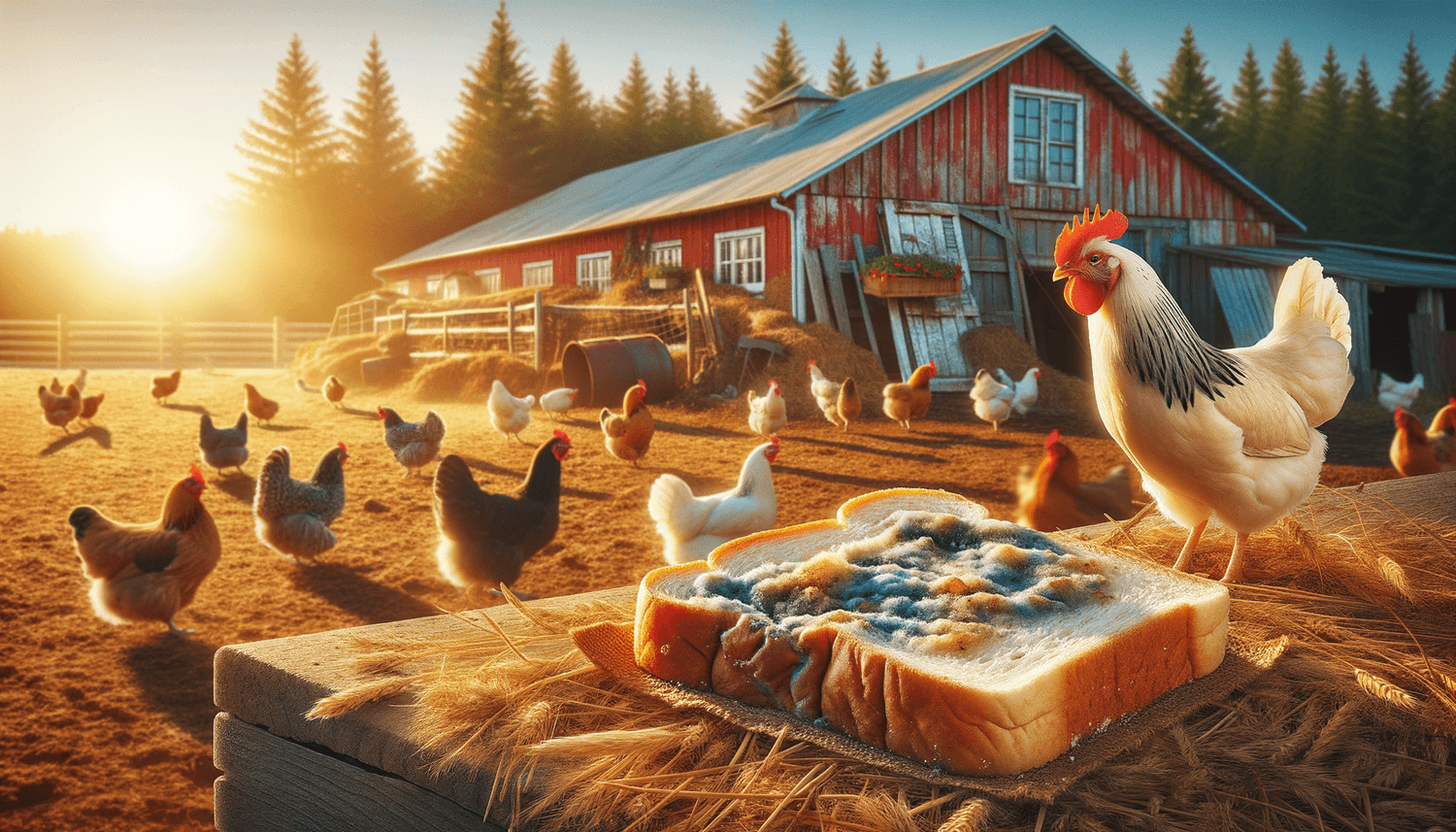No, chickens cannot eat moldy bread. Feeding moldy bread to chickens can lead to serious health issues because mold can produce mycotoxins, which are toxic compounds that can harm a chicken’s digestive system and cause respiratory problems. Moldy food of any kind should always be kept away from poultry to maintain their health.
Quick Summary
- Chickens cannot eat moldy bread.
- Mold on bread can produce harmful mycotoxins.
- The risks of feeding moldy bread include respiratory and digestive illnesses.
- Feed chickens fresh, wholesome food and avoid any mold-contaminated items.
Overview of Moldy Bread
Bread is a staple food made typically from wheat flour, water, yeast, and salt. When it is left in a moist, warm environment, it can develop mold. Mold is a fungus that grows in the form of multicellular filaments called hyphae, and it can produce dangerous mycotoxins. While some types of mold are used in producing certain foods, the types that grow on stale bread are generally not safe for consumption.
Benefits and Risks of Moldy Bread for Chickens
While plain, fresh bread can be an occasional treat for chickens in small amounts due to its carbohydrate content, moldy bread is dangerous and carries no benefits for chickens. The mycotoxins that most molds produce can hinder the immune system, cause organ damage, and lead to respiratory problems, making moldy bread a risky and potentially lethal food item for chickens.
Feeding Guidelines
Bread, if given as a rare treat, should only be given in small amounts to chickens to ensure they consume a balanced diet. Fresh, mold-free bread is preferable, while stale or moldy bread should never be given. Treats should make up no more than 10% of a chicken’s diet, with the rest being a balanced poultry feed.
Alternatives
If you’re looking for safe snack options for your chickens, consider wholesome foods like cooked grains, vegetables, and fruits. Items like cooked rice, quinoa, pumpkins, cucumbers, and apples can serve as healthier alternatives that are far more beneficial to a chicken’s diet than bread, especially if it’s moldy.
Expert Opinions
Poultry nutritionists and veterinarians agree that moldy foodstuffs should not be fed to chickens. The unanimous advice is to provide a balanced diet appropriate for poultry, which does not include moldy or spoiled food. Studies have shown that mycotoxin contamination in feed can adversely affect poultry health, leading to diseases like mycotoxicosis.
Frequently Asked Questions
After learning about the risks of moldy bread for chickens, many backyard poultry keepers often have additional questions. Here are some of the common questions answered for your convenience.
What should I do if my chicken has eaten moldy bread?
Monitor your chicken closely for any signs of distress or illness and provide it with fresh water and poultry-appropriate feed. If you notice any health issues or abnormal behavior, consult a veterinarian immediately.
How can I prevent mold growth on bread and other chicken treats?
Store bread and other foods in a dry, cool environment and only offer small amounts to your chickens that they can consume quickly. Remove any uneaten food before it has the chance to become moldy.
What are the signs of mycotoxin poisoning in chickens?
The signs can vary widely but often include respiratory distress, reduced appetite, decreased egg production, diarrhea, and lethargy. If you suspect mycotoxin poisoning, seek veterinary care immediately.

















